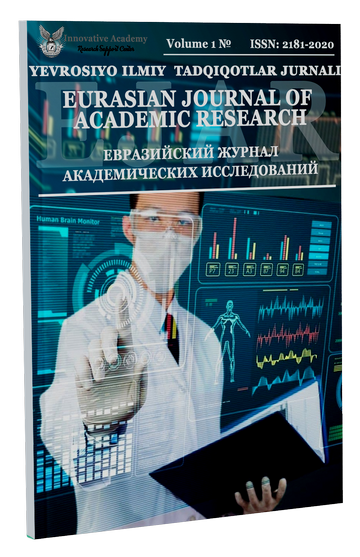THE ANALYSIS OF STUDENTS` ATTITUDE TOWARDS TEACHER`S PRESENCE IN ONLINE AND OFFLINE LESSONS (BASED ON QUESTIONNAIRE)
Main Article Content
Аннотация:
Significant changes in science and technology has facilitated the improvement of teaching as well as learning. Teacher`s presence is considered as one of the most crucial components of successful learning environment, nevertheless, student`s centered approach is acknowledged by plethora of specialists. The current work scrutinizes the reaction of freshmen to teacher`s presence in Reading and Writing classes in language-specialized university. The study is based on the questionnaire in which about 50 students have participated. The research depends on both quantitative and comparative approaches to identify student`s real opinion about teacher`s presence. This is applicable because presence may contribute to teachers’ reflection-in-action and their ability to reply to classroom situations
Article Details
Как цитировать:
Библиографические ссылки:
Anderson, T., Rourke, L., Garrison, D. R., & Archer, W. Assessing Teaching Presence in a Computer Conferencing Context. Journal of Asynchronous Learning Networks, 5(2): 1-17; 2001.
Arbaugh, J. B., & Hwang, A. Does Teaching Presence Exist in Online MBA Courses? Internet and Higher Education, 9, 9-21; 2006.
Baker, C., & Taylor, S. L. The Importance of Teaching Presence in an Online Course. Online Classroom, 5-8; 2010.
Dewan, S., & Dewan, D. Distance Education Teacher as a Leader: Learning from the Path Goal Leadership Theory. MERLOT Journal of Online Learning and Teaching, 6(3); 2010.
Garrison, D. R., Anderson, T., & Archer, W. Critical Inquiry in a Text-Based Environment: Computer Conferencing in Higher Education. The Internet and Higher Education, 2(2-3), 87- 105; 2000.
Garrison, D. R., & Anderson, T. E-learning in the 21st century: A Framework for Research and Practice. London: Routledge/Falmer; 2003.
Rovai, A. P., & Wighting, M. J. Feelings of Alienation and Community among Higher Education Students in a Virtual Classroom. Internet and Higher Education, 8, 97 110; 2005.
Shea, P., & Bidjerano, T. Learning Presence: Towards a Theory of Self-Efficacy, Self- Regulation, and the Development of a Communities Of Inquiry in Online and Blended Learning Environments. Computers & Education, 55, 1721-1731; 2010.
Shea, P., Li, C. S., & Pickett, A. A Study of Teaching Presence and Student Sense of Learning Community in Fully Online and Web-Enhanced College Courses. The Internet and Higher Education, 9, 175 190; 2006.


